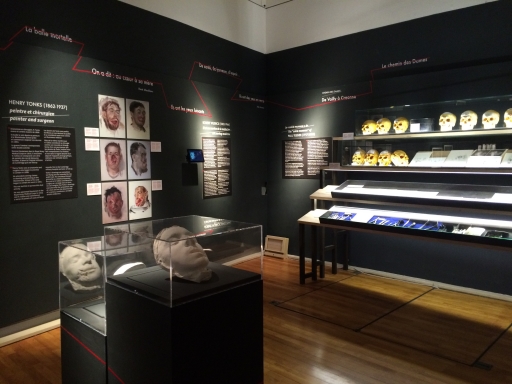The work of doctors who pioneered plastic surgery on disfigured soldiers is explored in a new exhibition at the Museum of the Great War in Péronne.
Face à Face: Regards sur la dé(re)figuration considers how the techniques developed to reconstruct faces shattered by battlefield wounds in 1914-18 have influenced surgeons since.
The exhibition is curated by Professor Bernard Devauchelle, the French surgeon who carried out the world’s facial transplant at Amiens University Hospital in 2005.
Casts, medical instruments and photos, as well as written and filmed testimonies, are among the exhibits used to show how maxillofacial surgery has evolved over the past 100 years.
They’re compared with plaster casts of the patients’ faces of today, before and after operations.
Visitors will see both the ingenuity and the limits of surgery, Professor Devauchelle says.
The psychological wounds of disfigurement, including the reaction of society and exclusion, are also explored.
Sir Harold Gillies, the New Zealand-born surgeon sent to France in 1915, is among the pioneering doctors featured in the exhibition. Returning to the UK, he led a team specialising in facial reconstruction at a hospital on the outskirts of London.
There’s a lasting record of his work in the pastel drawings of his patients made by the painter and surgeon, Henry Tonks, at Queen Mary’s Hospital in Sidcup.
Gillies was influenced by the skin-grafting techniques of the French maxillofacial surgeon, Hippolyte Morestin, whose work is also highlighted at the Péronne exhibition. Morestin was the author of many publications on reconstructive surgery.
Face à Face : Regards sur la dé(re)figuration can be seen at L’Historial de la Grande Guerre/ Museum of the Great War in Péronne until November 11th 2015 (Armistice Day).
Information & images supplied by Historial de la Grande Guerre
Posted by: Peter Alhadeff, Centenary News
